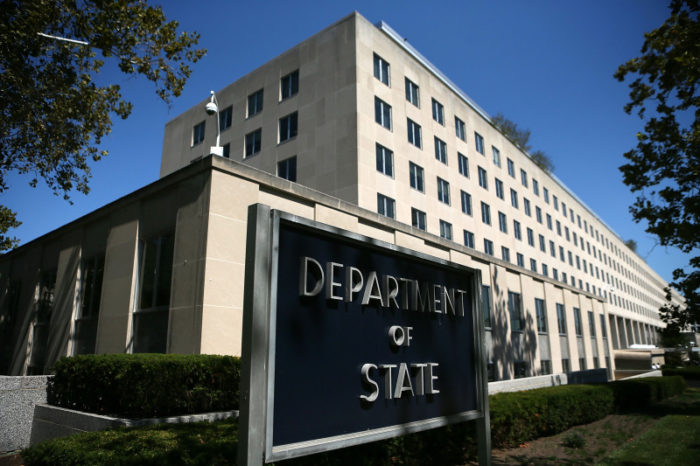WASHINGTON, DC – SEPTEMBER 12: A sign stand outside the U.S. State Department September 12, 2012 in Washington, DC. U.S. Ambassador to Libya J. Christopher Stevens and three other Americans were killed in an attack on the U.S. Consulate in Benghazi, Libya. (Photo by Alex Wong/Getty Images)[/caption]
The U.S. has raised its travel advisory for Burkina Faso to level 4, advising citizens not to travel to the country “due to terrorism, crime, and kidnapping”.
In an advisory, the State Department said it had ordered all family members of U.S. government employees not of age to leave the West African country and said it had authorised the voluntary departure of non-emergency U.S. staff and family members.
“Terrorist groups continue plotting attacks in Burkina Faso. Terrorists may conduct attacks anywhere with little or no warning,” the State Department said.

It added that the U.S. government is “unable to provide emergency services to U.S. citizens throughout most of the country”.
”Targets could include hotels, restaurants, police stations, customs offices, areas at or near mining sites, places of worship, military posts, and schools.
”Kidnapping and hostage taking is a threat throughout the country.”
On May 10, a hostage rescue operation freed four international hostages that had been kidnapped in Burkina Faso and in neighboring Benin.
Burkina Faso has maintained a state of emergency in the entire East and Sahel regions, the provinces of Kossi and Sourou in the Boucle de Mouhoun region.
Other restricted areas are the province of Kenedougou in the Hauts Bassins region, the province of Loroum in the North region, and the province of Koulpelogo in the Center-East region.
Burkina Faso is among the world’s 10 poorest nations, according to the United Nations.
It joins warring countries such as Somalia and Syria in the level 4 category.
Venezuela and Bolivia were also added to the list this year. (NAN)




GIPHY App Key not set. Please check settings